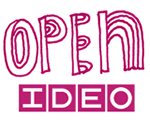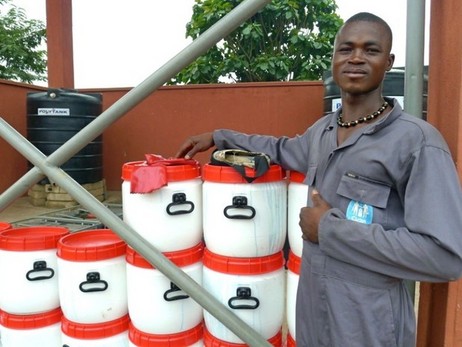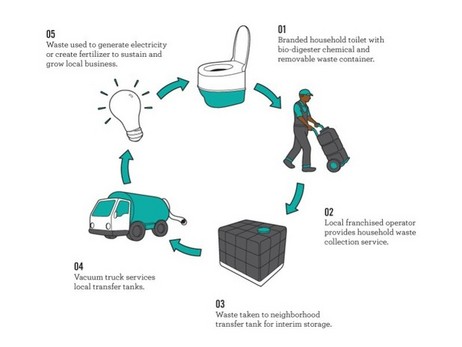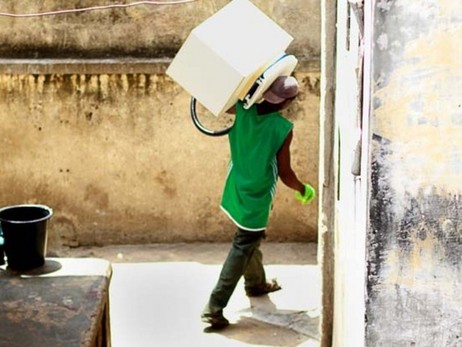Open Innovation Provides Sanitation Solutions in Ghana
Published Jan-07-13Breakthrough:
A global community of solvers provided concepts and inspirations to solve toilet and waste management dilemmas in Ghana.
Company:
CleanTeam, Ghana
The Story:
 The lack of proper sanitation in the home and in public areas is a serious health concern in Kumasi, Ghana’s second largest city. Many households do not have their own toilets and the range of sanitation options on offer encourages the spread of diseases such as cholera, typhoid, and dysentery.
The lack of proper sanitation in the home and in public areas is a serious health concern in Kumasi, Ghana’s second largest city. Many households do not have their own toilets and the range of sanitation options on offer encourages the spread of diseases such as cholera, typhoid, and dysentery.These problems are common to many places in the world as 2.5 billion people still lack access to improved sanitation.
Unhygienic Sanitation Options
Existing options in Kumasi are less than perfect and they include openly defecating and ‘flying toilets’.
Public toilets cost a few cents per use, which is too expensive for families to use every day. Many are unhygienic with newspapers for wiping and often no water to wash hands. There are also long queues in the mornings and evenings.
So citizens resort to open defecation in public areas that are near the toilets.
In the home, some people will use a chamber pot at night and empty the contents into plastic bags. These are known as ‘flying toilets’ because they are left at the sides of roads, in alleyways, ditches, garbage dumps, and waterways.
Crowdsourced Solutions
To help improve public health in low-income areas like Kumasi (population of more than 1.5 million people) the multinational consumer company Unilever partnered with IDEO, a global innovation and design firm, and Water and Sanitation for the Urban Poor (WSUP) to create the OpenIdeo Challenge. It sought to harness the creativity and ingenuity of a 35,000+ member social innovation community to improve toilets and waste management.
Participants were presented with a number of questions during the challenge’s ‘Inspiration’ phase to catalyze thinking. These included:
• What innovations have you seen in waste-management and sanitation in developed nations or emerging markets?
• Can we find inspiration in the way waste is managed at construction sites, campgrounds, hotels, or even on cruise ships?
Overall more than 200 ideas were submitted and included creating a network of educated mothers, a framework that pays for poop (it could be used for fertilizer), and adopt-a-drain campaigns.
The global IDEO community has been designed so that participants can inspire and interact with each other, and come up with ideas that may spark one another to build on them.
New Toilet Service
The waste management solution to emerge from all of this is a non-flush in-home toilet for people who do not possess a toilet. It’s available on a rental basis and comes with waste cartridges that are collected between two and four times a week.
The service is run by ‘CleanTeam’ which is directed by Unilever and WSUP.
The value of the crowd in this open innovation initiative was that its concepts fed into Unilever’s solution - a five-step, sustainable ecosystem for distributing and servicing portable toilets to low-income households. Community members helped to make it more robust and realistic.
A six-month test project put the toilets in 100 homes and further refined the concept. As of November 2012 there are 110 regular customers with 300 more households on the waiting list.
To date, the feedback from residents has been very enthusiastic: “This one is our own so it is always clean,” said one resident. “In the night it can be dangerous going out, because anything can happen to you on the way” commented another. “With the toilet in the house, I think one is safe.”
Next Story »



